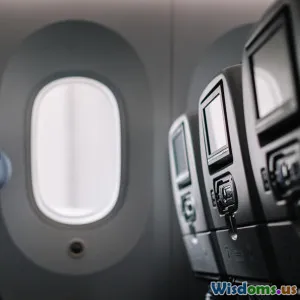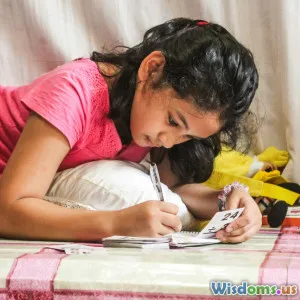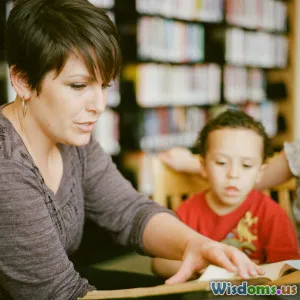
Do Kids Really Learn More When Traveling Abroad
8 min read Explore how international travel enriches children’s learning by expanding their cultural, social, and cognitive horizons beyond traditional classrooms. (0 Reviews)
Do Kids Really Learn More When Traveling Abroad?
Travel captivates the imagination and invites us to explore worlds beyond our doorstep. For children, traveling abroad presents not just an exciting adventure but also unique opportunities to expand their learning – far beyond traditional school textbooks. But this leads to an intriguing question: do kids really learn more when traveling abroad? This article dives deep into how international travel impacts children's education, cognitive growth, cultural understanding, and social skills, backed by evidence and expert insight.
The Tangible Educational Benefits of International Travel
Contrary to the common perception that learning is confined to classroom settings, travel introduces children to immersive, multidimensional educational experiences.
Experiential Learning in Real Time
Experiential learning theory, championed by educational psychologist David Kolb, suggests knowledge is gained through transformation of experience. For kids discovering ancient ruins in Rome, navigating busy Asian markets, or observing wildlife in Africa, these encounters spark curiosity and embed understanding on a deeper, more lasting level than traditional worksheets.
A 2015 study by the U.S. Department of Education showed that students who traveled abroad performed significantly better in areas like global awareness, understanding of different cultures, and language skills.
Learning Languages and Communication Skills
Immersion is the most effective way to acquire new languages. Children traveling abroad absorb new languages through daily interactions with local peers, shopkeepers, and guides, practicing pronunciation and vocabulary naturally. Anecdotal evidence from parents recounts 8- to 10-year-olds picking up enough conversational phrases in Spanish or French to hold basic conversations within a week abroad.
Moreover, children develop communication skills by interpreting nonverbal cues and adapting to various social contexts, skills essential in a globalized world.
Academic Curriculum Integration
Many families who travel incorporate their trips into home-school curricula by researching the history, geography, and politics of their destinations. This contextual approach bolsters comprehension as children connect textbooks to tangible landmarks and cultural phenomena.
For instance, visiting the Great Wall of China turns a static history lesson into an awe-inspiring memory anchored in true experience.
Cognitive and Emotional Growth: The Subtle Rewards
Traveling challenges children in unfamiliar environments, which can foster vital cognitive and emotional skills.
Enhanced Critical Thinking and Problem Solving
Navigating foreign cities with unfamiliar languages and etiquette compels children to think on their feet and develop problem-solving abilities. From deciphering public transport maps to managing money in new currencies, they become resourceful and confident.
Research published by the International Journal of Psychology concludes that multicultural experiences correlate with greater cognitive flexibility and creativity, traits pivotal to learning innovation.
Building Empathy and Global Awareness
Witnessing diverse lifestyles and cultures helps nurture empathy in children, an essential component of social intelligence. For example, volunteering with children in developing nations or exploring local markets teaches tolerance and a nuanced understanding of socioeconomic differences.
Pope Paul VI aptly noted, “If you want peace, work for justice.” Travel instills this ethos early by showing the world’s inequalities and promoting kindness.
Developing Independence and Resilience
Being beyond their comfort zones encourages children to face challenges – missed flights, language barriers, or getting lost – contributing to resilience. The sense of accomplishment from overcoming such hurdles fosters independence that is vital as they mature.
Challenges and Considerations: Not All Learning is Automatic
While benefits abound, it’s essential to recognize that simply traveling abroad doesn’t guarantee increased learning.
Quality over Quantity
Purposeful travel, designed with learning goals and reflection, truly enhances development. Just visiting tourist attractions superficially may leave little educational impact. Parents and educators should prepare children by discussing the cultural, historical, or ecological significance of sites and encouraging journaling or project work.
Accessibility and Cost Considerations
Travel opportunities remain unequal globally, often restricted by financial means. This limits access for many families and raises questions about equitable learning opportunities. Schools and communities promoting local cultural exchanges or virtual experiences can partially bridge the gap.
Age and Travel Experience
Younger children may absorb languages quickly but might lack long-term memory retention. Teenagers can engage more critically with socio-political contexts but may resist unfamiliar environments. Tailoring travel experiences to developmental stages maximizes learning effectiveness.
Real-World Insights and Expert Opinions
The Insights from Global Education Leaders
Dr. Michele L. Day, a renowned educational psychologist, states, “Travel places learning in context. It enlivens concepts from anatomy to anthropology and allows learners to be active participants rather than passive recipients.”
Anecdotal Stories from Globe-Trotting Families
The Smith family, who took a year-long sabbatical through Southeast Asia with their children, report significant growth: “Our kids became more adaptable, curious, and even improved their academic focus after encountering new cultures,” says Linda Smith, mother of two.
Conclusion: Traveling Abroad is a Powerful Enhancer of Children’s Learning
The evidence is compelling – children do learn more when traveling abroad, particularly when trips are thoughtfully planned with educational objectives. Travel engages multiple learning domains simultaneously: cognitive, social, emotional, and linguistic.
From language acquisition to cultural empathy, children emerge with skills and perspectives almost impossible to replicate in traditional settings. However, the true value lies in immersion and reflection, rather than mere sightseeing. Additionally, parents, educators, and policymakers should strive to make these enriching experiences more accessible to all children.
Ultimately, the world is the most vibrant classroom available. By encouraging international exploration in childhood, we nurture well-rounded learners equipped to thrive in our interconnected global society.
References
- U.S. Department of Education. ‘‘Why Study Abroad?’’ (2015)
- International Journal of Psychology. ‘‘Multicultural Experiences and Cognitive Flexibility’’ (2018)
- Educational Psychology Commentary – Dr. Michele L. Day (2022)
- Personal interview with Linda Smith, parent and world traveler (2023)
Ready to expand your child’s horizons? Start planning that transformative trip and watch learning come alive beyond the classroom walls.
Rate the Post
User Reviews
Popular Posts

















